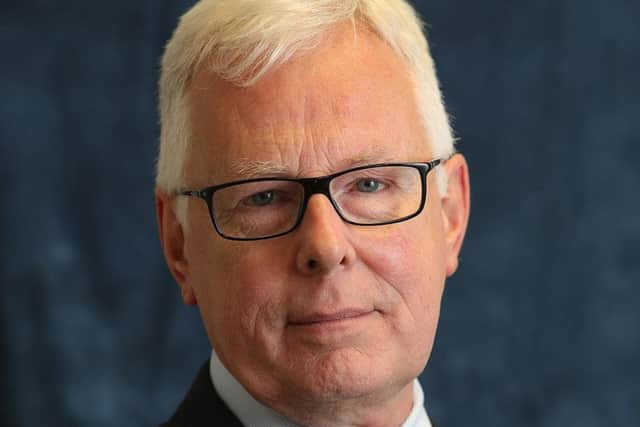Hugh Ouston: If it takes 10,000 hours to master a new field, how long to master yourself?


In art history, we smiled condescendingly at Velazquez’ little Meninas all dressed up like miniature adults. It is easy to see that online ‘influencers’ are asking the same of our own children, not as courtiers but as consumers. The most impressive recent innovation at Glenalmond is making the pupils give up their phones during the school day – I have not seen one since I arrived in January. It helps to separate the influence of consumerism and social media, with those consequences for children’s wellbeing which are now being scientifically documented, from the task of education.
Yet that task still falls into the same trap. A crowded curriculum, a competence based assessment system, the fragmentation of knowledge, the race to get good grades, the competition for places at university, the anxiety about employment – all put pressure on teachers, whether academic or pastoral – if that false distinction still means anything.
Advertisement
Hide AdAdvertisement
Hide AdThe Curriculum for Excellence long since lost its ideals in an educational marketplace, where choices which were supposed to be left to schools turned quickly into the usual centrally-controlled deficit model. Where then was the richness of experience, tailored to their personal needs, which would have empowered young people as citizens, contributors, individuals and learners? Lost in competitive bureaucracy, in lack of professional trust, in pared down resources – and above all in the need for speed.


The most perceptive theories of learning push in a different direction. Multiple Intelligences will not be found as you race to complete the course. Character Education needs time to reflect on values, and to learn them through role modelling and emotional contagion, example and practice.
Growth Mindsets are not susceptible to summative assessment. Positive Education needs space and time to develop the emotional intelligence, engagement, relationships, meaning and achievement on which its concept of wellbeing is founded. It does not matter whether a school uses none, one or all of these – they are like palm reading, a gateway to conversation and reflection. All of these ideas are directed to the aim of living well. What they have in common is that they involve virtues, which can only grow slowly.
Virtues can be defined in many ways: civic, intellectual, moral and performance. Julia Annas’ book Intelligent Virtue sees virtue of any kind as both a philosophical ideal and the lived experience of doing the right thing. So it becomes part of human flourishing, of our agency of happiness.
This is nothing new. Sir George Mackenzie, the 17th century Scottish lawyer, argued that neither the virtues of reflection nor those of action were superior; what mattered was the relationship between the two. Annas argues that the acquisition and exercise of virtue involves practical reasoning in the same way as any other activity. It can only build up richly when it builds up slowly.
The wisest advice I ever heard at a graduation was from an old journalist, who told the students that what matters, in making a good life, is what you do in your 30s. Young people know they will have a long working life, so the freeing of their 20s to continue exploring and learning is a gift. What is the hurry? If it takes 10,000 hours to master a new field, how long does it take to master yourself?
What children need is space and time. Space to be safe from the drum beat of exploitation, where adults objectify them to make money and worse; time to learn who they are and what they are capable of.
There has never been so much to learn; therefore growing up – that process whose length gave humans their evolutionary advantage – should take longer than ever too.
Advertisement
Hide AdAdvertisement
Hide AdThis is the core purpose of schools, to teach children to learn at a pace which empowers them to reflect, to share, to practice – even just to remember.
For their mental health, their wellbeing, their social adjustment, even for their exam results, the first and last message we can give them is, don’t grow up too quickly.
Slow Food avoids indigestion. Slow Learning does too.
Hugh Ouston, warden, Glenalmond College.